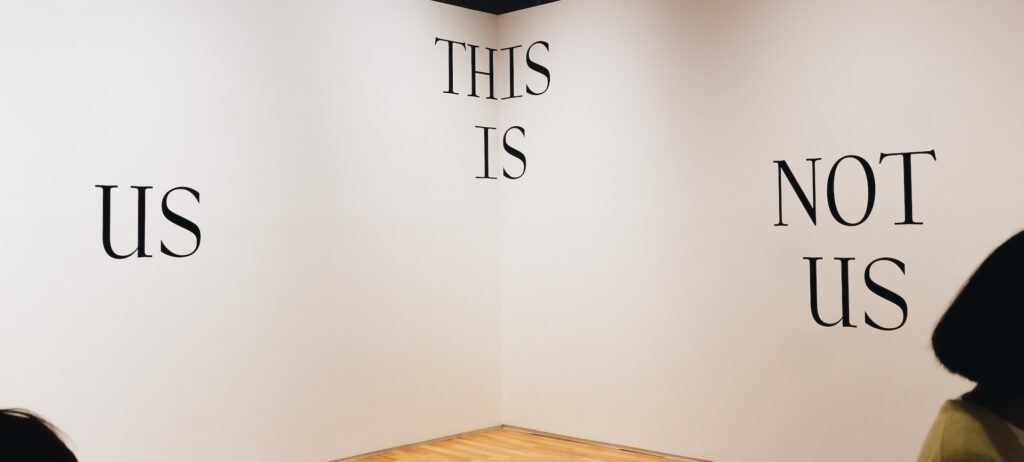
The 2023 International Education Conference Season is well underway and this feels like the perfect time to kick off our blog!
I’m writing this to share the journey of navigating how to grow our worker cooperative and engage in the international education ecosystem while managing our greenhouse gas emissions because it hasn’t been easy! Below, I’ll share how I believe we’ve always worked and what the climate crisis means for us. And in an upcoming post, I’ll share where we landed as a team and why for our conference schedule.
THE WAY WE’VE ALWAYS WORKED
Global international education conferences like NAFSA, EAIE, CAIE, APAIE, and The Forum on Education Abroad, in addition to a wide range of national and provincial conferences, have been vital to building the robust international education ecosystem over the years, with a mix of service providers, institutions, and associations all collaborating and profiting just enough to keep extreme competitiveness at bay and create a truly enjoyable sector in which to work.
Current practices dictate that it is important to have presence when the sector gets together at a conference, particularly for service providers. Whether that’s having an exhibitor booth, speaking at a session, or sponsoring an event, prior to joining Alethea, several Alethea members have “had” to go to conferences simply because our organization’s competitors were going to be there. And let’s be honest, we weren’t mad at it, it’s always been fun to travel the world on our organization’s dime and get to see old friends and new cities as part of our work. It was glamorous and exciting. That’s how it’s been for as long as any of us have been in international education.
WHAT THE CLIMATE CRISIS MEANS FOR US
So where does that leave us, a burgeoning worker cooperative focused on equity-centered climate action and decarbonization? Alethea members came together to support the adaptation and transformation of the international education sector and lead by example because we believe that things can and must be done differently.
It doesn’t make sense for us to, then, engage with conference seasons in the same way just because “that’s how it’s always been done”. In the face of the climate crisis, our calculus needed to change, and difficult decisions needed to be made.
QUESTIONS WE ASK OURSELVES
This means that when we sat down as a team to plan what conferences we were going to attend and not attend (and who to sponsor!) in the 2023-2024 academic year, we asked ourselves several questions and challenged many existing practices:
- Does this organization’s values and commitments to climate justice align with our organization or do they simply pay lip service (ie: greenwashing)?
- Is this conference happening in a city where Alethea has a member or will a member be in the area?
- If not, what is the emissions impact of attending this conference? And who carries the burden of the impact of those emissions?
- If we have to emit GHGs to attend, what is the positive impact that can be had via influence and action on our international education community, on our business?
- Can we make a bigger impact by not attending in that we are not delaying email replies, meetings, conversations, and other work that gets pushed back because “i was traveling for x, y, z conference”.
- Are we thinking about attending this event just because we always have and it’s part of “the circuit”? Or because we like where it is being held?
- What is the risk of not attending? And how does that compare to risks presented by the climate crisis? (spoiler on this one: it is never comparable, but it’s an important reminder of the impact of our work in this system and to not turn a blind eye to it)
FINAL THOUGHTS
More often than not when talking about whether or not to attend, exhibit at, or sponsor a conference, we had to revisit the conversation more than once because it’s not easy to break old habits and assumptions. I must confess, it was more challenging than I thought it would be but there have been several upsides to our final decisions:
- As an organization, lessened our conference-related expenses by abiding to our emissions-related boundaries;
- Our team is more productive because we’re not incurring opportunity costs by being on the road and pushing back meetings, email responses, and important conversations because we’re “on the road”;
- We have created more meaningful relationships with conference organizers as we searched for ways to center climate action in our work together; and
- We’re proud of being able to walk the talk and “do business” differently!
Ultimately, we’re quite happy and proud of where we landed (almost always metaphorically!) and what conferences we’ll be attending and sponsoring in the upcoming months. We know as opportunities come up, and new partnerships emerge, we’ll inevitably have to ask ourselves these questions again, but we’re learning that it’s okay to sit in the discomfort and conference FOMO!
